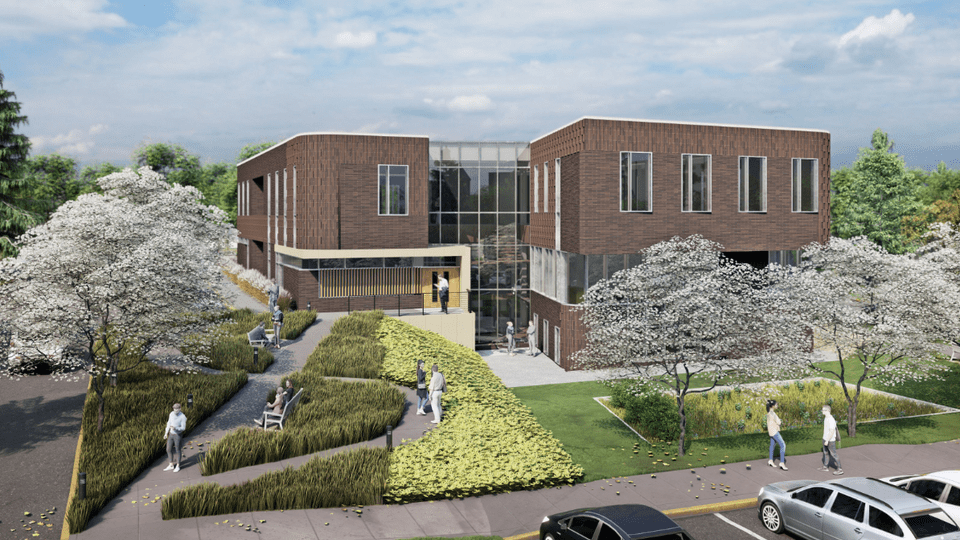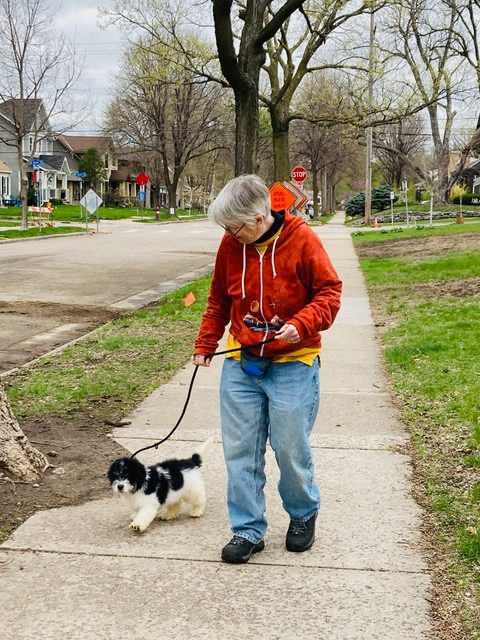Maggie O’Connor ’74 establishes endowed fund dedicated to neurodiversity in honor of 50th Reunion
O’Connor has established the Mypamiroda Neurodiversity Endowed Fund in order to expand the capacity of Carleton’s Office of Accessibility Resources in affirming, supporting, and recognizing the full neurodiversity of the Carleton community.

Student mental health and well-being has been an interest for Maggie O’Connor ’74 since she was a student herself — back when mental health wasn’t nearly as talked about or well understood, especially on college campuses. That interest turned into part of her profession after O’Connor graduated medical school, as she spent 14 years of her 36-year career as director of student health services at Minnesota State University–Mankato, after gaining experience in primary care/obstetrics and before finishing her career in palliative medicine as lead MD at Abbott Northwestern Hospital in Minneapolis.
After a few of her family members began identifying as neurodivergent, O’Connor expanded her interest in mental health and well-being to include neurodiversity. She started reflecting on how people’s life experiences might be different with increased societal awareness and support.

This year, O’Connor decided to connect her interest in neurodiversity to her 50th Reunion gift to Carleton by establishing the Mypamiroda Neurodiversity Endowed Fund. Named in reference to those most dear to her who are on the spectrum of neurodiversity, the fund is being created to expand the capacity of Carleton’s Office of Accessibility Resources (OAR) in affirming, supporting, and recognizing the full neurodiversity of the Carleton community. It will support a broad array of programs, services, and research, with the goal of increasing understanding and enhancing the experience of neurodiverse students at Carleton.
O’Connor’s gift aligns perfectly with the Class of 1974’s interest in supporting student health and wellness at Carleton more broadly. Securing a permanent facility for Student Health and Counseling (SHAC) as part of the Student Life and Housing Plan and helping Carleton address increased demand for physical and mental health support services has been a focus for 1974’s 50th gift campaign.
Near the beginning of their Reunion planning process, ’74 gift committee members met with Carleton staff to talk about modern challenges on campus and how they could help, and noticed that health service issues had become a theme of the discussions.
“I began feeling quite emotional about it, to my surprise,” O’Connor said. “There’s a real need for proper mental health care for students everywhere — it can make such a big difference.”
Her suggestion that the class put some of their focus on mental health was “just a drop in the bucket” at the start of the conversation, according to O’Connor, but it picked up momentum fast, and soon all of her classmates were talking about their own experiences with mental health and how they could support current students’ experiences.
“I don’t know if having this kind of support in college would have made a huge difference for any of my family members,” O’Connor said. “They made it through ok, as far as I know. But wow, it sure would have made it all easier.”
When it comes to her family members, O’Connor likes to talk about the gifts they have that neurodiversity brings. Her father created beautiful, complex, beaded weavings based on mathematical concepts. Her brother is a musician with experience in radio and various forms of technology, who figured out a way to connect other musicians via the internet without lag, so they can put on online concerts.
“I hope what emerges in our society in time is an appreciation of these amazing gifts,” O’Connor said. “Whatever goes on in the brain, however neurodiversity happens, I hope that those gifts are the first thing that comes to mind rather than communication hurdles or awkwardness.”
O’Connor’s gift of the endowed fund is an open one, and has already inspired others to give — David Newkirk ’74 and Janet Newkirk ’74, for example, have made a “now and later” gift that contributes to the endowed fund through current and deferred giving. They were also inspired to give by their family members, particularly their children.
“What people often don’t understand about neurodiversity is that it’s not about treating a problem, it’s about giving kids what they need,” Janet Newkirk said. “We have two wonderful adult children who would describe themselves as neurodiverse. We’re privileged in that we had some knowledge of neurodiversity when they were children, so we could give them a lot of what they needed to manage and function in the world. Not everyone has that knowledge, so we wanted to contribute to Maggie’s gift in order to help faculty understand their students and help students state their needs clearly.”
“College life is complicated enough, even if you’re part of the dominant neurotypical culture,” David Newkirk added. “We want Carleton staff and faculty to be able to help their students live more comfortably in the world. Our children had those resources — they know who they are and how to engage with the world as they are, and that’s led to success for both of them. We want that success for current and future Carls, too.”
O’Connor has enjoyed reconnecting with classmates like the Newkirks as part of her involvement with her class’s 50th Reunion. The process has also made her realize some things about growing older — especially growing older with other people in the Carleton community.
“My father lived to age 94, and by the end, he had one good friend as his age-mate,” O’Connor said. “That experience, and now my experience with our 50th Reunion, has made me realize how important it is to have those age-mates, because you have shared memories. Not just with politics or history, but the collective memory of all the people we’ve known. So for me, having this community that gathers regularly [every five years for Reunion] is something I really look forward to.”
Erica Helgerud ’20 is the news and social media manager for Carleton College.